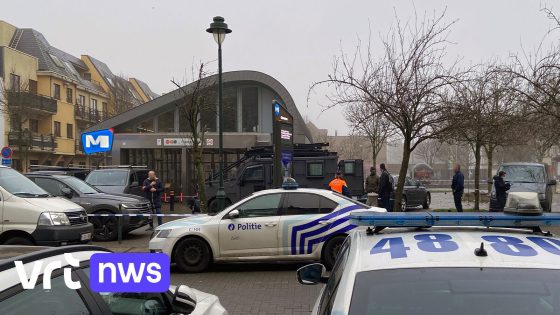A 14-year-old boy with far-right sympathies was arrested in Belgium on January 25, 2025, for allegedly planning an attack on a mosque in Molenbeek. This shocking incident raises questions about youth radicalization and security in Europe.
- 14-year-old boy arrested in Belgium
- Planned attack on mosque in Molenbeek
- Swastika found during police search
- Weapons and computer equipment seized
- Placed in youth protection facility for three months
- Rapid online radicalization of youth noted
Justice Minister Paul Van Tigchelt confirmed the arrest, highlighting concerns over extremist ideologies among minors. How can communities prevent such alarming Trends?
Belgium’s Youth Radicalization Crisis: What You Need to Know
The recent arrest of a young boy planning an attack highlights a troubling trend. Why are minors becoming involved in extremism? With nearly one-third of terror suspects under 18 from 2014 to 2022, this issue demands urgent attention.
Understanding Far-Right Extremism Among Minors
The case underscores the growing concern over far-right radicalization among young people. Authorities found weapons and computer materials during the arrest, indicating serious intent. Here are key points regarding this disturbing trend:
- The boy had connections to extreme right-wing groups.
- A swastika was discovered during his apprehension.
- This incident reflects broader issues of online radicalization.
- Youth involvement in terrorism is rising across Europe and beyond.
The Impact of Online Radicalization on Youth
Online platforms play a significant role in shaping extremist views among young individuals. Many vulnerable youths are exposed to harmful content that promotes violence and hate. How can parents and educators counteract this influence? Strategies include:
- Encouraging open discussions about online content.
- Monitoring internet usage more closely.
- Providing education on critical thinking skills related to media consumption.
The Role of Community Engagement in Prevention Efforts
Communities must come together to combat radicalization effectively. Engaging local organizations can foster understanding and create safe spaces for dialogue. Consider these approaches:
- Create mentorship programs connecting youth with positive role models.
- Organize community events promoting diversity and inclusion.
- Collaborate with law enforcement to identify potential threats early on.
This alarming incident serves as a reminder that vigilance is essential in addressing the factors contributing to youth extremism. By working together, communities can build resilience against such dangerous ideologies.
































